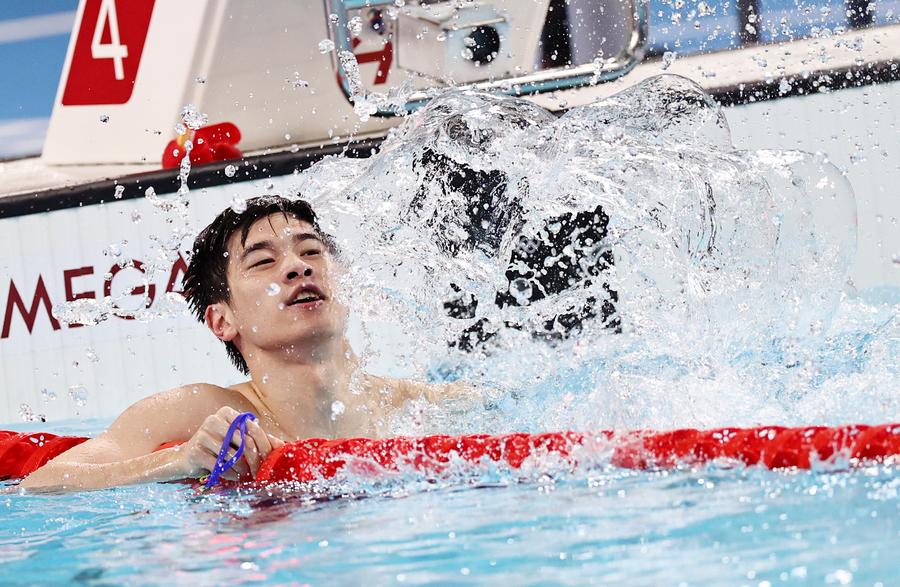
With one world record broken, three Olympic medals collected and plenty of respect earned, China's swimming prodigy Pan Zhanle celebrated his birthday by taking the Olympic pool by storm, and receiving another golden gift.
If there remained any doubts over his world-record-breaking performance in the 100m freestyle final, the "human thruster", as Pan has been nicknamed by Chinese fans, dispelled them all, as he helped the Chinese swimming squad cap its Paris 2024 campaign with a resounding victory in the men's 4x100m medley relay on Sunday.
Putting the Olympic icing on his 20th birthday cake, he eclipsed his own 46.40-second 100m world record with a rapid 45.92 final leg in Sunday's relay — a slap in the face of his detractors, proving what they claimed was "not humanly possible" is well within reach.
"We won, we are the winners. And if someone is not so happy about this, just let them be. We will leave proud of ourselves," Pan said after he propelled Team China, all the way from third place before his final leg, to win the medley relay in 3 min, 27.46 sec to rousing applause at the Paris La Defense Arena.
The United States finished second, 0.55 seconds behind China, while the host France, powered by four-time gold medalist Leon Marchand, had to settle for bronze, finishing in 3:28.38.
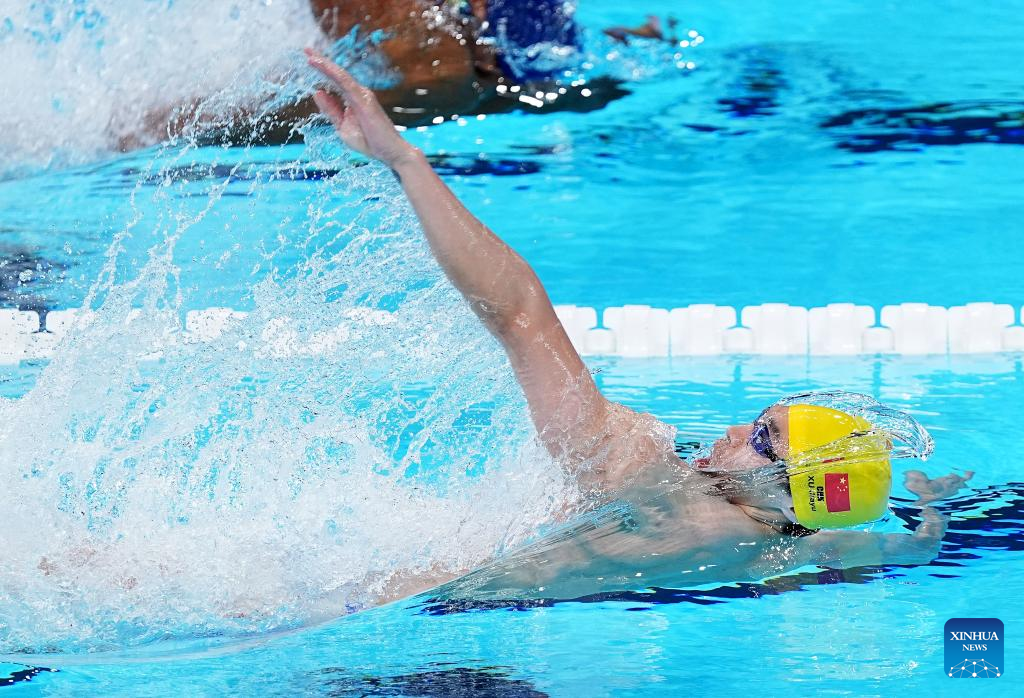
The inspiring win from the quartet of backstroke specialist Xu Jiayu, breaststroke world champion Qin Haiyang, butterfly speedster Sun Jiajun and Pan has ended Team USA's 64-year stranglehold on the men's medley relay at the Olympics.
With the exception of the 1980 Moscow Games, which the US boycotted, Team USA has won every race in the discipline since it was first introduced into the Olympic program in 1960 — until now.
Pan's scintillating final-leg push — the world's first sub-46 sec 100m split ever — also surpassed the 46.06 swum by Jason Lezak of the US that led the American team to gold in the event at Beijing 2008.
ALSO READ: Swimmers' golden finish wins respect of opponents
According to World Aquatics rules, only athletes competing in the leadoff leg in a relay are eligible to count official world record times, due to the following legs' advantage on faster relay dives compared to the static start in an individual race.
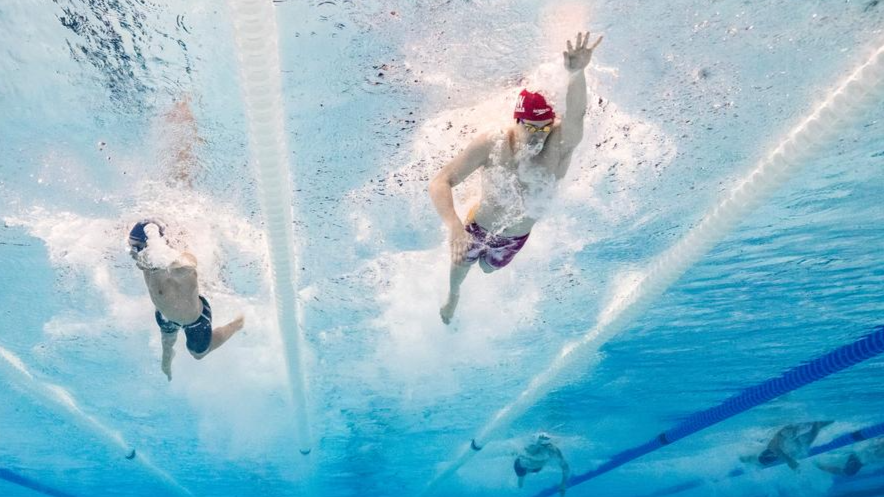
While the crowd was left stunned by his lighting-fast final leg, Pan, however, wasn't surprised at all.
"To crack the 46-second barrier was a goal I set on my birthday a year ago. I am just so happy that I realized it big-time — at the Olympics," said Pan, who also won a silver medal as a member of China's runner-up team in the mixed 4x100m medley relay.
Adding to the excitement on Sunday was the resurgence of breaststroke phenom Qin, who swam the field's fastest second leg — 57.98 — returning to his flying pace and keeping the team in pole position in the early stages of the relay.
As the first swimmer to sweep all three breaststroke titles (50m, 100m and 200m) at the world championships last year, Qin suffered a disappointing individual slump, missing out on a podium finish in both the 100m and 200m in Paris, which he attributed to the pressure-cooker atmosphere.
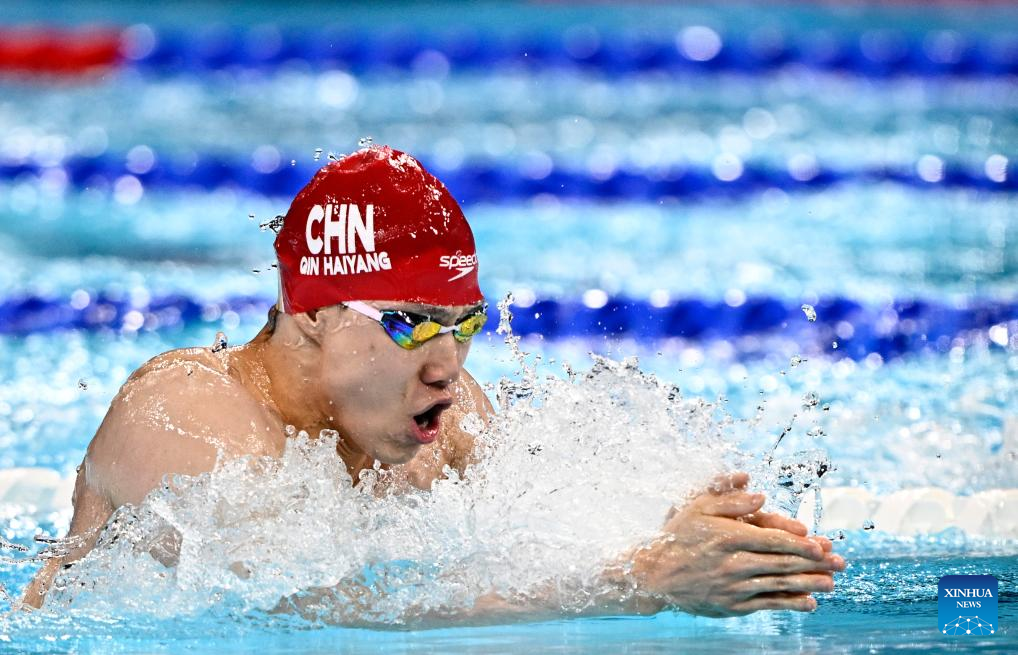
The current 200m breaststroke world record holder (2:05.48) said the relay gold is a critical morale booster for the Chinese swimming program, despite coming a bit late.
"This gold medal is of great significance to the entire Chinese swimming team. At these Olympics, we've experienced a lot of challenges, and we've come a long way. This achievement is the most inspiring of all. It showed the solidarity of our team," said Qin, who finished 7th in the 100m and failed to qualify for the 200m final in Paris.
"Our goal today was to win the gold and break the stranglehold of the US, and we've done it."
ALSO READ: Swimming: US struggling to top medal tally, China's Pan delivers new 100m free record
Showing their mettle
With two more bronzes bagged in women's 50m freestyle by Zhang Yufei and in the women's 4x100m medley relay in the final evening session, the Chinese swimming team wrapped up the nine-day Olympic meet with two gold, three silver and seven bronze medals to bring home its biggest medal haul from the Paris pool, with six more than Tokyo and two more than its previous best at London 2012.
The distraction from groundless accusations of doping leveled by overseas media, such as The New York Times and German broadcaster ARD, targeting Chinese athletes involved in a proven food contamination incident in 2021, took a heavy toll emotionally and psychologically on the nation's pre-Games favorites, including women's butterfly star Zhang and men's breaststroke world champion Qin.
Both Zhang and Qin struggled to bring their best form in their respective specialist events, having had to face a higher-than-normal number of doping tests prior to, and during, the Games, as well as fielding questions from overseas media that were both unfair and irrelevant to their performances.
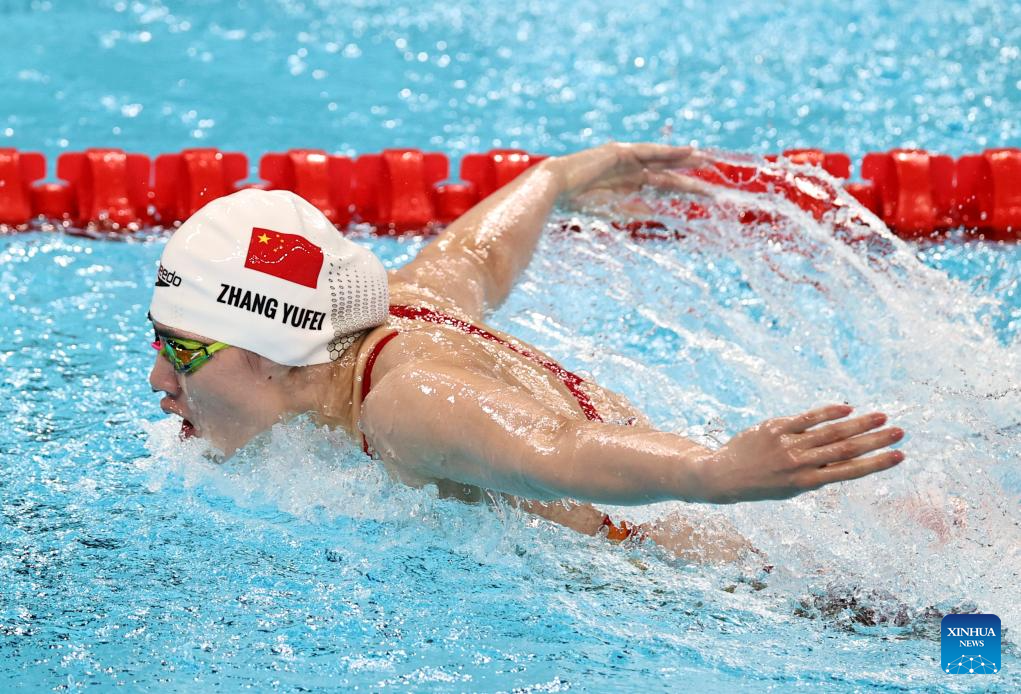
"I feel proud of myself, but I am not so satisfied that the medals are all bronze and silver. I dreamed of a gold medal, but, this is sport. At this competition, it is not as simple as do your best and you get what you want," said Zhang, after clocking 24.20 to win a bronze medal in the women's 50m free on Sunday. "I accept this result, and I will never give up doing my best in the future."
"This is my third Olympic Games. I've had a whole life in swimming, so, after Paris, I maybe want to try a different experience. Maybe get a boyfriend or go to college, possibly go traveling. Then, if I still have the passion to come back and push for a fourth Olympics in 2028, I will," said Zhang, who won bronze in both the 100m and 200m individual butterfly finals.
The 26-year-old has pocketed a total of 10 medals at the past two Summer Games, giving her biggest collection of Olympic metalware of any Chinese athlete, across all sports.
READ MORE: Zhang defends Chinese swimmers, questions 'unfair' Western media
The rise of the younger generation, led by women's 100m breaststroke silver medalist Tang Qianting and Pan, has helped the veterans rest assured that the program's future is in good hands.
"I am feeling quite proud of my younger teammates, who have shown obvious progress at these Games. I am not young anymore, but they have great potential to keep Chinese swimming competitive in the future," said Xu Jiayu, a three-time Olympian who won his second men's 100m backstroke silver medal in Paris.


